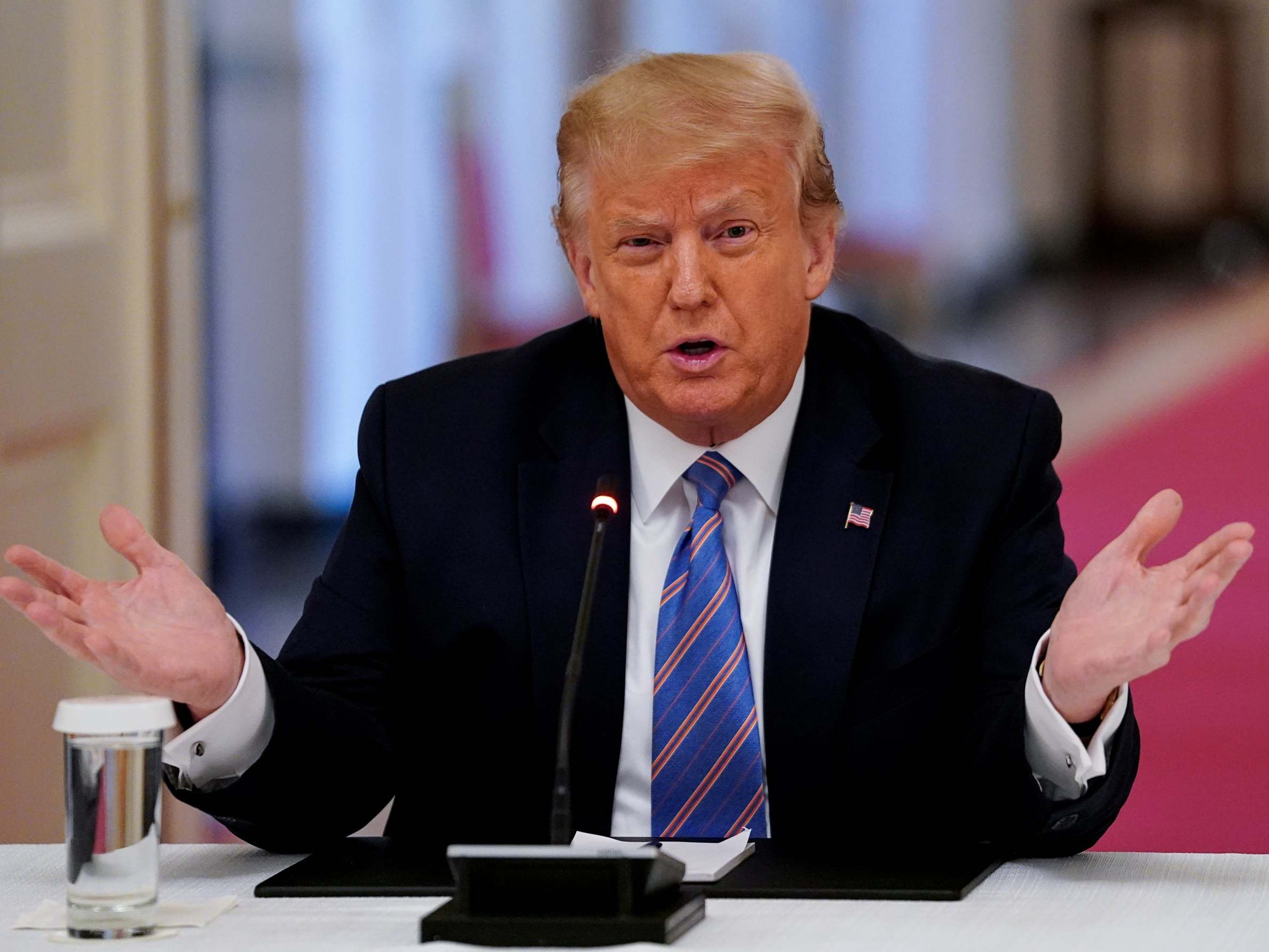Trump confirms he ordered cyberattack on Russian trolls during midterm elections
President says US 'stopped' interference, in rare acknowledgement of Kremlin's disinformation campaign

Your support helps us to tell the story
From reproductive rights to climate change to Big Tech, The Independent is on the ground when the story is developing. Whether it's investigating the financials of Elon Musk's pro-Trump PAC or producing our latest documentary, 'The A Word', which shines a light on the American women fighting for reproductive rights, we know how important it is to parse out the facts from the messaging.
At such a critical moment in US history, we need reporters on the ground. Your donation allows us to keep sending journalists to speak to both sides of the story.
The Independent is trusted by Americans across the entire political spectrum. And unlike many other quality news outlets, we choose not to lock Americans out of our reporting and analysis with paywalls. We believe quality journalism should be available to everyone, paid for by those who can afford it.
Your support makes all the difference.Donald Trump has acknowledged that he ordered a clandestine military cyberstrike against Russian trolls in 2018 to disrupt their internet access during the midterm elections.
Asked by Marc Thiessen, a columnist for The Washington Post, whether he had authorised the operation, Mr Trump said: “Correct,” according to an article published on Friday.
Until now, neither the White House nor the Pentagon had publicly confirmed the operation, which had been classified.
Mr Trump sought to frame his action as an example of being more aggressive than his predecessor in countering the Kremlin. Barack Obama, he said, "knew before the [2016] election that Russia was playing around. Or he was told. Whether or not it was so or not, who knows? And he said nothing.”
In fact, the Obama administration publicly called out Moscow in October 2016 for its hacking of Democratic computers, and Mr Obama directly raised the matter with Vladimir Putin. In December of that year, Mr Obama imposed sanctions on Russia over its interference in the presidential election.
Still, the admission is a rare instance of Mr Trump acknowledging that Russia had malign intent with respect to American democracy. He even seemed to brag about his role in deterring such efforts.
“Look, we stopped it,” the president told Mr Thiessen.
The admission comes as US intelligence officials have warned that Russia will seek to disrupt this year's presidential election.
For the most part, Mr Trump has avoided acknowledging such warnings and that Russia has sought to sow discord in the United States, even siding with Mr Putin in his denials that Moscow interfered in the 2016 presidential elections - despite his intelligence agencies' conclusion to the contrary.
Last year saw reports on the US Cyber Command (Cybercom) operation against the Internet Research Agency in St Petersburg, a company underwritten by an oligarch close to Mr Putin. IRA trolls were active during the 2016 campaign, posing as Americans to post material online in an effort to stoke conflict by exploiting racial and other societal tensions.
The operation was part of the first offensive cyber-campaign against Russia designed to thwart attempts to interfere with a US election, officials told The Washington Post. It marked the first use by Cybercom of new authorities granted by Mr Trump and Congress in 2018 to bolster offensive capabilities.
The attack began on Election Day and lasted several days, preventing the Russians from mounting a disinformation campaign that cast doubt on the election results, officials said.
The Russian Embassy did not respond to a request for comment.
The Washington Post
Join our commenting forum
Join thought-provoking conversations, follow other Independent readers and see their replies
Comments